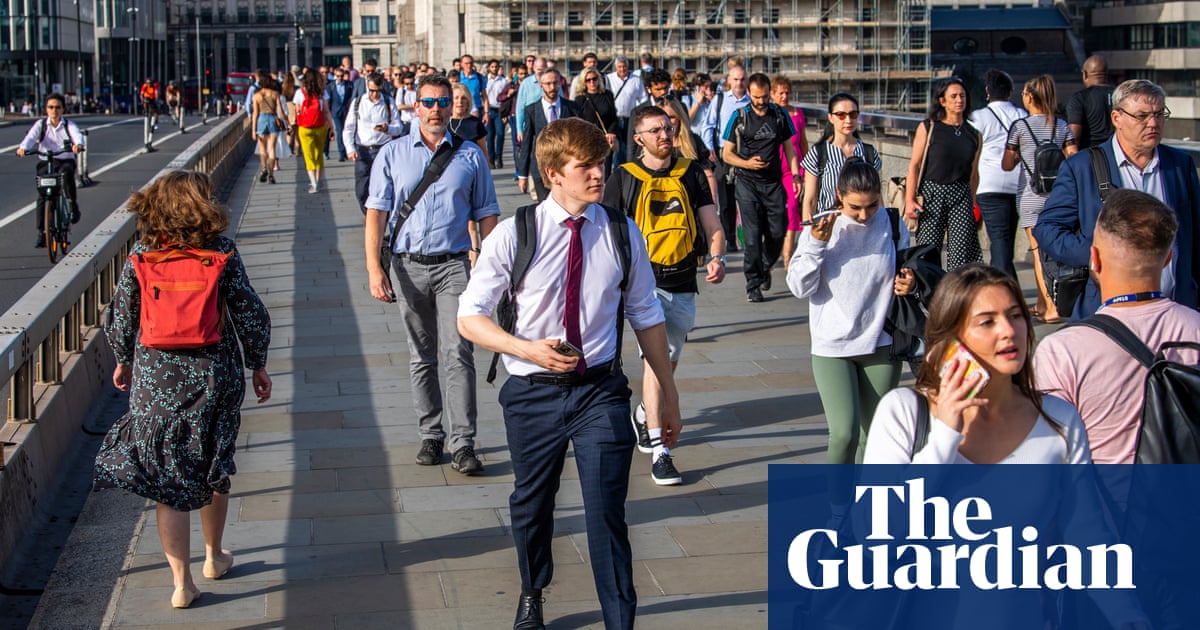
The UK’s unemployment rate has edged higher and pay growth continues to lag well behind high inflation, according to the latest official data highlighting the dilemma faced by the Bank of England.
Reflecting softer conditions in the jobs market as Britain’s economy struggles for growth momentum, the unemployment rate unexpectedly rose to 3.8% from 3.7%, the Office for National Statistics figures showed. The number of job vacancies also fell for a ninth consecutive month, although it remained high at more than 1.1m as companies struggle to recruit staff.
The Office for National Statistics said annual growth in average pay, excluding bonuses, held steady at 6.6% in the three months to February despite a small rise in unemployment and decline in the number of job vacancies.
Fuelled by bumper pay for bankers and accountants in the City of London, wage growth including bonuses rose by 5.9%. Economists had forecast weaker rates of pay growth, in a potential dilemma for the Bank of England as it considers whether to raise interest rates for a 12th consecutive time in May.
However, the ONS said total pay fell by 4.1% on the year after taking inflation into account – among the largest falls since 2009.
Official figures for March are expected to show on Wednesday that headline inflation fell to 9.8% from 10.4% in February. However, that would still leave the cost of living well above the Bank’s 2% target, and well ahead of wage growth.
The chancellor, Jeremy Hunt, said: “While unemployment remains close to historic lows, rising prices continue to eat into pay cheques which is why halving inflation this year is one of our top economic priorities.”
The latest snapshot showed a rise in the number of working days lost to strikes in February amid action by civil service staff and teachers, with 348,000 working days lost during the month.
Average wage growth in the public sector picked up to 5.3% on the year, the fastest annual rate since 2005, contributing to the narrowest gap with the private sector since 2021. Pay in the public sector had fallen behind by the most on record. Private sector wage growth slowed for a third consecutive month to 6.9%, still significantly ahead of the public sector.
Paul Nowak, the TUC general secretary, said the figures showed workers were suffering the longest wages slump in modern history. Calling on ministers to resolve pay disputes, he said: “Hard-pressed families can’t take much more. It is no surprise that workers are having to take strike action to defend their living standards.”
In a mixed update from the jobs market, the latest figures showed an increase in the size of the workforce as more young people left full-time education to find a job, helping to cut the UK’s rate of economic inactivity – when working-age adults are neither in a job or looking for one – by 0.4 percentage points.
Britain has lagged behind almost every other advanced economy in the world for increasing workforce participation since the Covid pandemic, making it one of the government’s top priorities as companies struggle to recruit staff.
However, long-term sickness rose to a fresh record high of 2.7 million among those still economically inactive, continuing an increase since the Covid pandemic that some economists have attributed to record NHS waiting lists and years of public sector funding cuts.
Economists said stronger than expected pay growth, before inflation was taken into account, could add pressure on the Bank of England to raise interest rates from the current level of 4.25% when its monetary policy committee next meets on 11 May.
The central bank is closely watching pay growth amid concerns that a tight jobs market could fuel persistently high levels of inflation. Official inflation figures for March, due to be published on Wednesday, are expected to show the annual rate cooling to below 10% for the first time in six months.
Ashley Webb, a UK economist at the consultancy Capital Economics, said: “The labour market became a bit less tight in February and wage growth continued to ease, albeit slowly.
“That leaves the Bank of England with a tough call on whether to raise interest rates further.”











